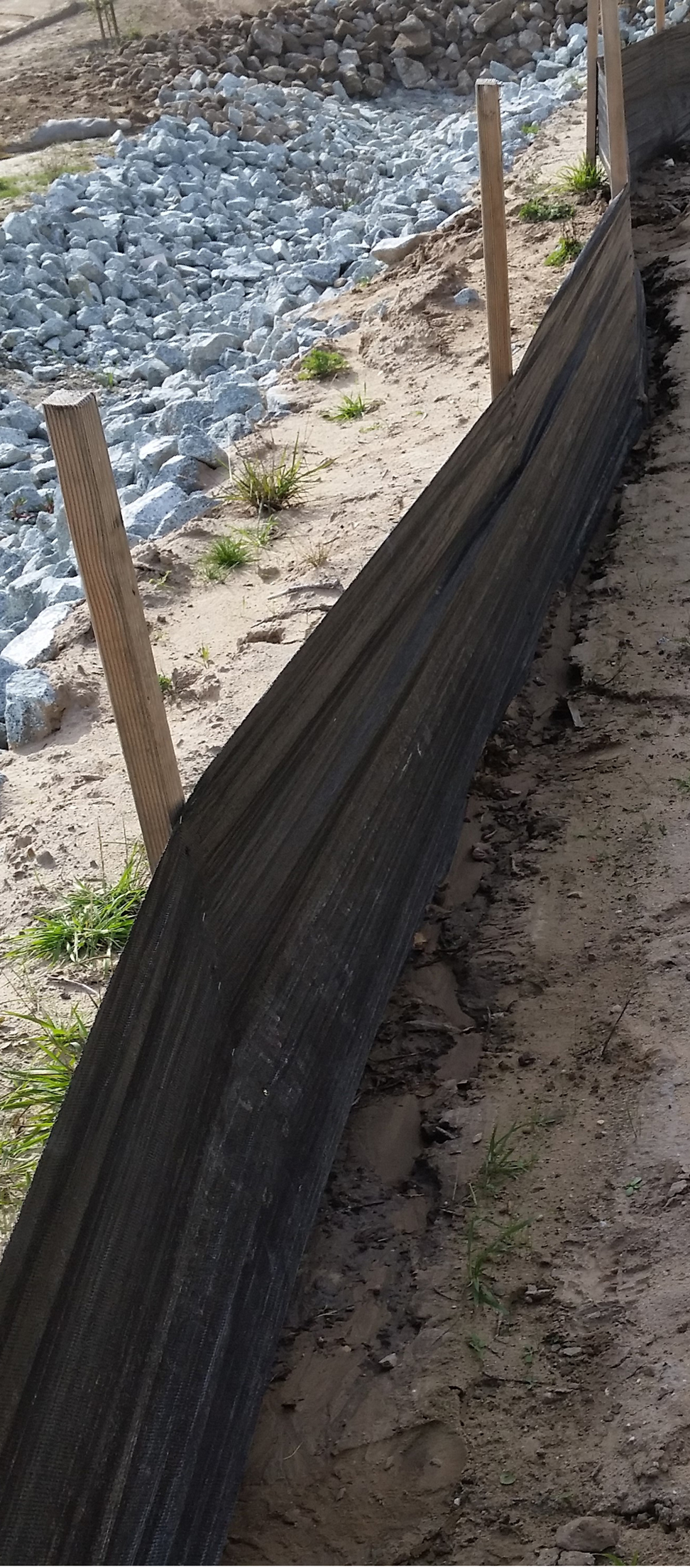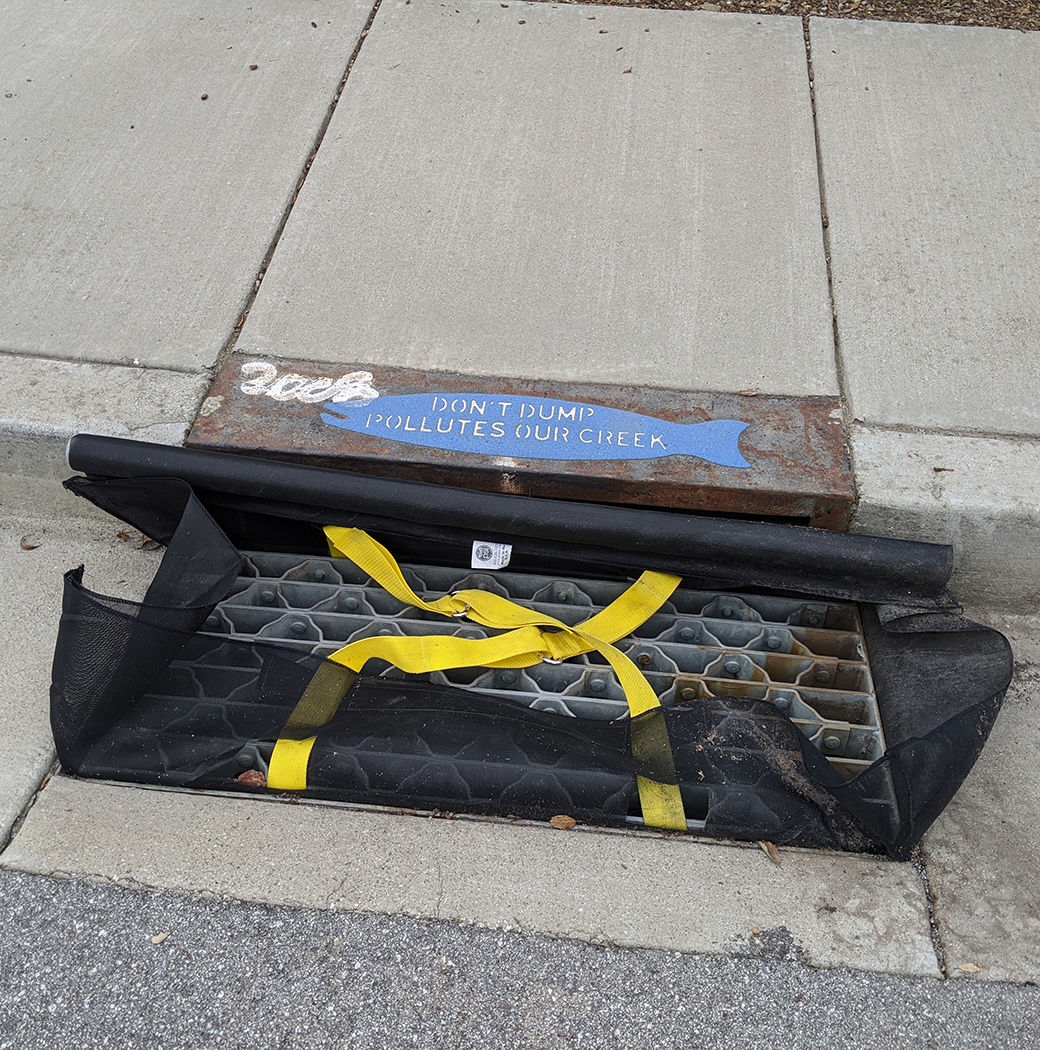CONSTRUCTION AND ITS IMPACT ON STORMWATER
DIRT CAN HURT
- Dirt and other materials from construction projects are harmful to local creeks and aquatic life (fish and insects). Dirt can smother creek beds where fish and insects breed and hide.
- Construction projects can release dirt and construction materials into the storm drains, which flow directly to the creeks.
- Local, State, and Federal laws require construction projects to minimize the discharge of pollutants, like dirt, from leaving the construction site.
- If you are disturbing the ground, it is important to do your part in protecting stormwater and creeks by implementing Best Management Practices.
- Construction Best Management Practices, also called BMPs, include a variety of measures that help to minimize the discharge of dirt and other pollutants. All projects need to implement basic BMPs to protect stormwater and creeks.
EROSION AND SEDIMENT CONTROL PLANS
- If your project requires a permit (e.g., building or grading permits) from the City, you may need to develop an Erosion and Sediment Control Plan.
- An Erosion and Sediment Control Plan or ESCP establishes the site-specific plan of actions and BMP that you will take to prevent dirt and other construction materials and waste from leaving your site. You will need to submit your ESCP for City approval with your permit application.
- An ESCP needs to include an effective combination of erosion controls and sediment control to prevent dirt from leaving the site. The ESCP also needs to include good housekeeping practices to prevent construction materials and waste from leaving the site.
- For more details on the specific requirements for ESCPs please see Lincoln Municipal Code Section 13.30.090 or contact publicservices@lincolnca.gov.

STORMWATER POLLUTION PREVENTION PLANS

Larger projects, that disturb an acre or more of land, need to obtain coverage under the State Water Board’s General Permit for Stormwater Discharges associated with construction activities. This permit is commonly called the Construction General Permit or CGP.
If your project will disturb an acre or more of land you will need to obtain coverage under the CGP and develop a Stormwater Pollution Prevention Plan (SWPPP) that meets the requirements of the CGP.
Briefly, a SWPPP is a detailed site-specific plan to protect stormwater quality leaving the site. SWPPPs must be prepared by qualified individuals and assess the pollutant potential of the project and sensitivity of the receiving waters. A SWPPP needs to include the detailed BMP implementation plan as well as a construction site monitoring program of inspections and runoff sampling.
More details on the CGP requirements and SWPPPs can be found on the State Water Board’s Construction Stormwater Program page.
If your project is subject to the CGP, you will need to submit your SWPPP to the City with your permit application or application for development approvals. Before you start construction you will need to provide proof that you have obtained CGP coverage by providing your Waste Discharger Identification Number.
Helpful Hints and Tips for Protecting Stormwater Quality During Construction Activities
- Fully implement your BMPs year-round.
- Implement an effective combination of erosion and sediment controls.
- Prevent erosion by stabilizing disturbed soil, paying particular attention to exposed slopes.
- Inspect your site, especially before and during storm events to make sure your BMPs are installed properly and are working effectively.
- Keep BMP replacement supplies at the site to make repairs and handle unexpected events.
- Train your staff and contractors on the BMPs and how to protect stormwater.
- Maintain your construction entrance and exit points to minimize tracking and sweep the streets.
- Maintain drain inlet and perimeter protection year-round.
- Prevent discharges of anything but clean stormwater to the storm drains.
- Protect stockpiles by covering them and surrounding them with perimeter controls.
- Although it can rain any time of the year, most rain in Lincoln occurs between October and March. Review your SWPPP or ESCP and your site in August-September to make sure you are prepared for the start of the rainy season.
- Immediately report any instances of sediment or other pollutant discharges from your construction site to Development Services by calling (916) 434-2470.
Resources

- State Water Board Construction Stormwater
- CASQA Construction Best Management Practice Handbook. This handbook includes a SWPPP template. Subscription required.
- Caltrans Construction Site Best Management Practice Manual
- To find a QSP or QSD you can use the CASQA lookup tool
- CGP Introduction for the Legally Responsible Person (Training Video)
- Wildlife-friendly BMPs

